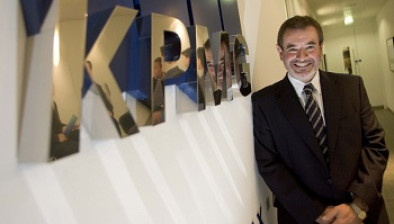KPMG: Scotland’s economic growth expected to contract by over 9% this year
Scotland’s economic growth is expected to contract by 9.1% in 2020 as the coronavirus pandemic continues to impact the global economy, according to KPMG UK’s latest quarterly Economic Outlook.

Catherine Burnet, KPMG’s regional chair in Scotland
The firm’s latest analysis further downgrades forecasts for Scotland’s economic prospects from the 8.1% predicted in June.
However, given advancements in vaccine developments for COVID-19, there is a high chance that the pandemic will be overcome by mid-2021. Growth in Scotland is expected to pick up to 8.2% next year if a vaccine is rolled out by April with the economy reaching pre-COVID level by early 2023.
UK-wide, KPMG is forecasting GDP decline of 10.3% for 2020, downgraded from 7.2% predicted in June, with growth of 8.4% in 2021.
Three alternative scenarios were considered for the timing of the recovery, based on potential different dates of the vaccine being approved and then rolled out in the UK – and a Brexit deal outcome.
KPMG’s base scenario assumes that a vaccine will be approved in January, immediately reducing uncertainty, and rolled out by the end of April enabling all social distancing measures to be removed. It also assumes the UK and the EU reach an agreement on their future relationship before the end of the transition period this year. But even just a three-month delay in rolling out the vaccine could see UK GDP growth fall to 7.1% in 2021, instead of 8.4%.
A range of risks is also considered, where the outcome will impact potential growth. They include a no deal with the EU next year and limited progress in eradicating the pandemic. If these play out, growth in 2021 could fluctuate by between 8.4% and 4% at the least.
The latest forecasting model suggests Orkney and Shetland will be hit hardest, economically this year, with drops in GVA of 11.4% and 11.1% respectively. Meanwhile, East Renfrewshire looks set to face the lowest impact, with a reduction in GVA of 7.4%.
Catherine Burnet, KPMG’s regional chair in Scotland, commented: “Our latest revised forecasts for Scotland highlight the scale of uncertainty facing the country over the coming months. The next six months could provide the greatest challenge as the business community wrestles with both the ‘new normal’ of a post-Covid-19 world and a potential hard Brexit.
“Across the country there appears to be some significant differences in the forecast short-term impact of Coronavirus, which raises concerns that we could face a ‘two-speed’ recovery with some regions struggling to regain lost ground. As vaccine research continues, the need now is for business and political leaders across Scotland to work collaboratively and set out a clear action plan to restore consumer confidence and long-term, sustainable economic growth.”
The government’s Job Retention Scheme (JRS), has protected the UK’s workforce and has been effective in keeping unemployment down during the peak of the crisis. But as the scheme unwinds and the economy continues to operate below capacity, unemployment could rise to over 9% in Q4 2020. The unemployment rate is expected to average 5.9% this year and 8.2% in 2021.
Unemployment is expected to fall very gradually because of the intertwining of structural changes and the economic shock created by the pandemic. Jobs in some sectors will become obsolete and will require concrete efforts by government to upskill workers for new jobs in new areas of the economy. Over time this could help accelerate the recovery in jobs and revitalise UK’s productivity growth.
Yael Selfin, chief economist at KPMG UK, added: “The pandemic has had a more significant impact on sectors that are more labour-intensive – and the recession will generate permanent change in some of them, meaning there will be a bigger effect on the labour market than the fall in GDP would imply.
“The UK government has an important role to play. Not just in continuing to provide short-term support to the economy but in readying the UK for a more productive future, including upskilling a significant part of the workforce and upgrading the UK’s telecommunications network. If we get this right, we could come out of this crisis with a better economy.
“While it feels like the worst of the COVID-induced economic crisis is behind us, there are still many challenges. There could be a second wave of infection this year, although we expect any future lockdown to be less severe – and the timing and speed of the economic recovery will be impacted both by vaccine developments and Brexit outcomes.”










